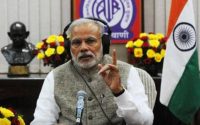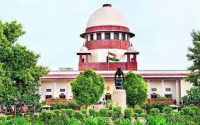SC rules on spouse maintenance
Source:-https://www.telegraphindia.com
The Supreme Court on Wednesday ruled that an estranged wife is entitled to maintenance from the day she files her application rather than from the date a court grants her maintenance.
The bench of Justices Indu Malhotra and R. Subhash Reddy also made it mandatory for a spouse to reveal at any maintenance proceedings whether any other court had already granted the spouse maintenance under some other law.
It also made it mandatory for both spouses to state their financial positions at any maintenance proceedings and update the affidavit whenever significant changes occur in their circumstances during the course of the hearings.
In the absence of a uniform regime, there is a vast variance in the practice adopted by the family courts in the country with respect to the date from which maintenance must be awarded,” Justice Malhotra, who authored the judgment, said.
“The view that maintenance ought to be granted from the date when the application was made is based on the rationale that the primary object of maintenance laws is to protect a deserted wife and dependent children from
destitution and vagrancy. If maintenance is not paid from the date of application, the party seeking maintenance would be deprived of sustenance owing to the time taken for disposal of the application, which often runs into several years.”
The court added: “Even though a judicial discretion is conferred upon the court to grant maintenance either from the date of application or from the date of the order in S(ection) 125(2) CrPC, it would be appropriate to grant maintenance from the date of application in all cases, including Section 125 CrPC.”
Estranged wives often seek maintenance simultaneously under various laws such as the Hindu Marriage Act, Hindu Adoption and Maintenance Act, Domestic Violence Act, Special Marriages Act and Section 125 of the CrPC while keeping the various courts in the dark about this, the bench noted.
“It is well settled that a wife can make a claim for maintenance under different statutes. For instance, there is no bar to seek maintenance both under the DV Act and Section 125 of the CrPC, or under HMA,” the judgment said.
“It would, however, be inequitable to direct the husband to pay maintenance under each of the proceedings, independent of the relief granted in a previous proceeding. If maintenance is awarded to the wife in a previously instituted proceeding, she is under a legal obligation to disclose the same in a subsequent proceeding for maintenance, which may be filed under another enactment.”
This will avert “overlapping jurisdiction and avoid conflicting orders being passed in different proceedings”, the court said.
It said that once disclosure is made about previous proceedings, the court hearing the subsequent proceedings “would take into consideration the maintenance already awarded in the previous proceeding and grant an adjustment or set-off of the said amount”.
The bench also stressed the need for both spouses to file an “affidavit of disclosure of assets and liabilities” during maintenance proceedings at any court. The existing statutes do not mandate such disclosure.



